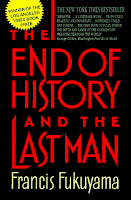It looks like the New Statesman carries an interesting and thought-provoking article this week, by George and David Kynaston. George is another SGS alumnus and former Teach First teacher, while his father David is the widely regarded and very readable historian of modern Britain. They've turned their sights on the issue of private school dominance in modern British society, adding to the wider debate about education and social mobility.
I haven't read the article yet - it arrives in the school library tomorrow - but NS editor Jason Cowley (a recent visitor to SGS himself) blogs his thoughts about it here, and George Kynaston was on this morning's "Today" programme (2 hrs 54 in) discussing it with Fiona Millar, the education campaigner.
Plenty of words have been exhausted on the issue of how education might best promote social mobility and of course there is no easy, ready-packed answer. The Kynastons accuse the left of ignoring the issue of the private sector for too long. They might equally - although I suspect they have not - accuse the left of having abandoned, for misplaced ideological reasons, one of the key engines of social mobility in the past, the grammar schools. It has not always been so of course.
I haven't read the article yet - it arrives in the school library tomorrow - but NS editor Jason Cowley (a recent visitor to SGS himself) blogs his thoughts about it here, and George Kynaston was on this morning's "Today" programme (2 hrs 54 in) discussing it with Fiona Millar, the education campaigner.
Plenty of words have been exhausted on the issue of how education might best promote social mobility and of course there is no easy, ready-packed answer. The Kynastons accuse the left of ignoring the issue of the private sector for too long. They might equally - although I suspect they have not - accuse the left of having abandoned, for misplaced ideological reasons, one of the key engines of social mobility in the past, the grammar schools. It has not always been so of course.
As I've blogged before, the problem of the mixed education system which ousted grammars was well
identified by a prominent academic in an article in the New York Review of Books in 2010, entitled simply “Meritocrats”. He furiously denounced what had been happening to secondary
education when he wrote:
For forty years, British education has been subjected to
a catastrophic sequence of “reforms” aimed at curbing its elitist inheritance
and institutionalizing “equality.”…. Intent upon destroying the selective state
schools that afforded my generation a first-rate education at public expense,
politicians have foisted upon the state sector a system of enforced downward
uniformity.
He was not the first critic. In the Black Papers of 1975, one author argued that:
Selection must and
will take place in education and those who banish rational methods of selection
are simply favouring irrational and accidental ones. The children who will be lost forever are the poor clever
children with an illiterate background….Why should socialist policy, of all
things, be so grossly unjust to the under-privileged clever child, avid to
learn, able to learn, and under non-selective education likely to pass in
relaxed idle boredom those precious years when strenuous learning is a joy and
the whole intellectual and moral future of the human being is at stake?
These were strong words, and the interesting thing in both
cases is that they came from the pens of bona fide left-wing thinkers. Tony Judt and Iris Murdoch
respectively. Would that the left came up with such fearless thinking on education again.







